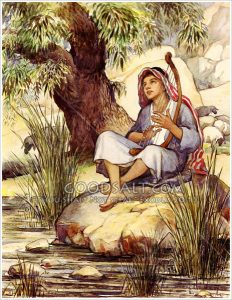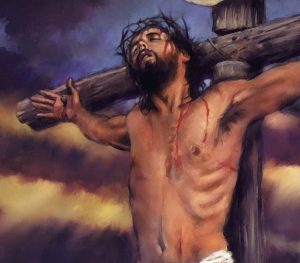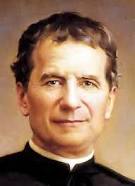Growing into a More Mature Image of God
(2 Sam 24:2, 9-17; Ps 32; Mk 6:1-6)
***************************************
“We are not punished for our shortcomings, we are punished by them.”
This snippet of wisdom comes from the movement of Alcoholics Anonymous and relates to the readings today with their challenge to us to grow into a more mature image of our God as mercy.
Our perennial problem as a wounded humanity created in the image and likeness of God is the temptation to reverse that difficult-to-fathom mystery, and make God into our own image and likeness that we can then try to control.
King David in the first reading provides us with an interesting example. We know that God made a covenant of unconditional love with David, but throughout our salvation history, both in the Old Testament and the New, we struggle with the reality of a God who loves us unconditionally. Oh, how we love to see people punished and our idea of justice served, and not seem to get off scot free.

King David as a young man
The first incident involving David is God’s forgiveness or his lust, adultery and arranging a murder. In spite of David’s repentance, pure forgiveness was too much for the author of 2 Samuel, so the son born of Bathsheba had to die. In today’s reading, David realizes he has sinned in ordering a census to be taken – innocent enough by today’s standard, but at the time seen as usurping power and control (sound familiar?) belonging only to God. David, however, repents wholeheartedly (“I have sinned greatly in what I have done … and done very foolishly), but is still punished with a pestilence in which seventy thousand people die.
“Seventy thousand people die!” Clearly, the operative image of God here is not mercy, but solely that of retributive justice. That mentality still persists to this day, as evidenced by the phrase, “Jesus wants me to continue to pray hard so that the mercy locked up in his Sacred Heart would be released” – a phrase I heard recently from a very pious dedicated Catholic.
Think about that sentence – what image of God does it portray, and how much power does it give to us – suggesting that our prayer is what controls God’s mercy? I wanted to shout out to the whole world, God’s mercy is not locked up anywhere – God is always pouring out God’s mercy as forgiveness and healing. God is forgiveness and mercy, so God “cannot not” be merciful and forgiving. As Pope Francis would say, God never tires of forgiving; we are the ones who neglect to come to God to receive the mercy freely given.
How hard it is to believe in a God who loves us just because God loves us, whose love cannot be earned or manipulated in any way, who wants us to respond to him out of love and not out of fear of punishment, however just that punishment might be.
The problem persists in the New Testament. We struggle to understand a parable where workers who put in one hour of labor get paid the same as those who work all day – it just doesn’t make sense to us. In today’s gospel, the people of his hometown “take offence” at Jesus and reject him – he is too ordinary, too familiar, too unlike a warrior Messiah they wanted and were expecting. Jesus was amazed at their unbelief, and could do little healing there, because God never forces God’s self on us – God always underwhelms us!
Think of it – Jesus was born a tiny baby to a poor family who became refugees and then immigrants; lived in poverty and obscurity totally unrecognized as the Son of God, practiced a humble ministry that was often rejected, as we see today, was always opposed by the religious leaders of his day, and finally was subject to capital punishment because of the collusion between the religious and civil leaders.
His response? Punishment and justice? No – only mercy, compassion, forgiveness, total non-violence and unconditional love. That is the final revelation, on the Cross, of who our God is. Our greatest challenge – can we believe it, accept it and live it? This means growing into a more mature image of God and allowing that image to permeate our thoughts, words and actions.

It is easy to see how today’s psalm might have been written by David himself, with its emphasis on forgiveness and deliverance: “Happy those whose transgression is forgiven … to whom the Lord imputes no iniquity” and “You surround me with glad cries of deliverance.” There is an echo here of the two-fold role of the Messiah whom David prefigured – to redeem and to sanctify, to forgive and to heal.”
In some ways, it is a movement like A.A. that can grasp more easily the total gratuitousness of God’s gracious mercy and unearned love. It is the weak, those on the bottom, with nothing to hide or claim, who can come up with the saying: “We are not punished for our shortcomings, but by them.”
Today we honor St. John Bosco, born in Piedmont, Italy, in 1815. Raised in poverty, John was ordained in Turin in 1841. After witnessing the circumstances of boys living in a local prison, he resolved to devote himself to working among disadvantaged boys – children living on the street, juvenile delinquents and any child who was suffering because of some disadvantage.

St John Bosco
John formed the Salesian Society, named Francis de Sales, and began educating boys of the poor and working classes, holding evening classes in factories, in fields or wherever there was a need. John believed in equipping boys for life in the world and trade schools soon formed a large part of Salesian training.
A progressive thinker, John must have had the merciful image of God described above, as he abhorred all punishment, believing that by removing youth from temptation, treating them with dignity and kindness, and enriching them with skills, they could be led to more productive lives. His rule was “Not with blows, but with charity and gentleness must you draw these friends to the path of virtue.” With the help of St. Mary Mazzarello, he also established the Salesian Sisters to do similar work among girls. John Bosco died in 1888 and was canonized in 1934.
The Eucharist is an experience of God’s merciful, unearned and undeserved unconditional love as forgiveness and healing.
May our celebration deepen our faith in a God who is mercy, compassion, forgiveness, unconditional love and total non-violence. And may it empower us to both live and spread that message to others.




You mentioned well who God is and what a mature person he has become. God is mercy, compassion, forgiveness, and non violence. This is what his Son Jesus Christ does by being crucified. This is what he does to save us from sins, by forgiving people and healing people from any illness and sickness. Thanks again for the homilies and messages.
Thanks for the information about St. John Bosco and the Salesian Society , I always forget about his feast day . I always love your homilies, teachings and advices. You mentioned it all …..even when you are on a writing holiday. I hope you had a fun time enjoying yourself. Many Blessings !